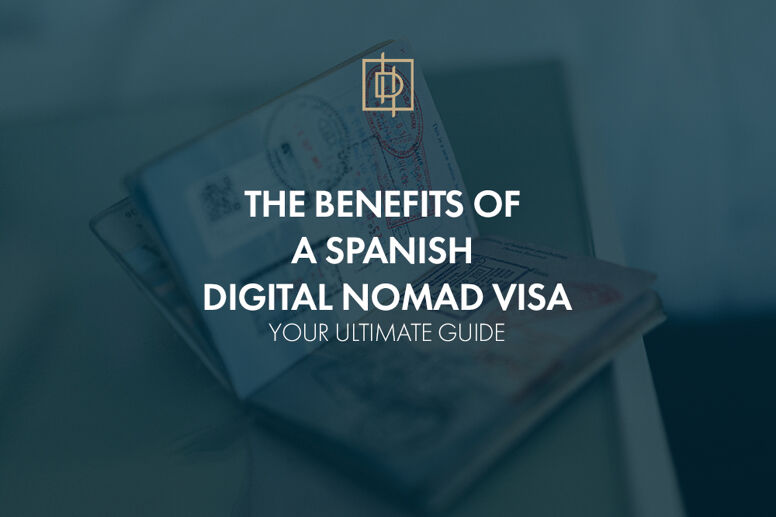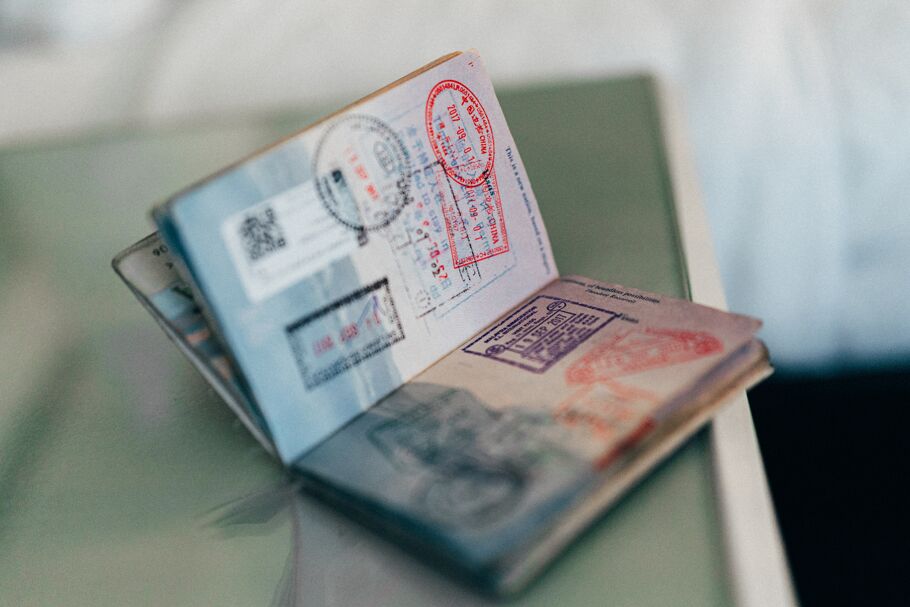

The Benefits of a Spanish Digital Nomad Visa: Your Ultimate Guide

As the world shifts towards a more remote-focused working lifestyle, many individuals are taking the opportunity to travel further afield and work from abroad. This new way of living has enabled them to pursue new opportunities, explore different cultures, and experience life in a way that would have been previously impossible. The ability to choose where to live and work is a powerful tool in the modern world, and that is why obtaining a digital nomad visa for Spain is exciting news for many.
Spain is a popular destination for remote workers due to its weather, rich culture, and breathtaking landscapes. But in particular due to its favourable visa policies. As of 2023, Spain integrated the "Ley de Start-ups", which offers visas to remote workers that allow them to live and work in Spain for an extended period of time.
What is a Spanish digital nomad visa?
A digital nomad visa acts as a residence permit that allows non-European citizens to live and work remotely in Spain for up to 5 years. This residency permit enables you to bring your spouse and children to Spain in the same application. Therefore, the digital nomad visa is an excellent choice for non-EU citizens who work for foreign companies that accommodate remote working. And, with Spain becoming a top destination for remote workers, this visa has enabled many to pursue their dreams of working and travelling.

What are the requirements to obtain a Spanish digital nomad visa?
One of the following prerequisites needs to be met before applying for a digital nomad visa:
- The individual must be employed by a company that permits remote working internationally.
- The individual must be self-employed and have several international clients. Or, the individual must have several sources of income from internet activity outside of Spain.
The difference between the two are:
- If they have a working contract with a foreign company, it is paramount that the company has been working for 1 year before applying for the visa. Moreover, the company must state they have allowed the individual to work remotely from abroad.
- If they are freelancers, they must work for at least one company outside of Spain (as a client), and there must be specifications for working remotely.
Then, the following rules apply:
- The company the individual works for must not be located in Spain. In the case of a freelancer, they must have a working relationship with clients that are not in Spain.
- They must demonstrate that they have worked for their company or freelance relationship with clients for at least 3 months before applying for the visa.
- In the case of working for a company, the individual must provide they have a contract with the same company for at least 1 year.
- They must demonstrate that they have sufficient work experience and education.
- In the case of experience: they must demonstrate a minimum of 3 years of work experience.
- In the case of education: they must have graduated from a reputable university, renowned business school or vocational training.
- They must not have any criminal records.
- In addition, they must submit their criminal record certificate, valid for a minimum of 9 months, and it must be apostilled and verified by a legal entity.
- They must also declare a clean criminal record that spans over 5 years.
- They must not have entry to Spain prohibited.
- They must have full-coverage private health insurance in Spain.
- They must provide an official translated document of proof of funds if their funds are in a foreign bank.
- Alternatively, those with a salary or job contract can use that to demonstrate proof of funds.
How to apply for a Spanish digital nomad visa?
There are several ways one can apply for the digital nomad visa:
- One can apply for the visa from their country of origin, which would entail getting a 1-year visa that can be changed to residency. Apply directly in Spain as a tourist and obtain a 3-year visa, which can be renewed for the 2 years following.
- The visa can be applied for during the first 30 days of their arrival in Spain, and it can be done so either in person or online.

Can you work in Spain with a digital nomad visa?
You can work in Spain with a digital nomad visa as a non-EU citizen, but there is a limit. The income generated from working with a Spanish company cannot surpass 20% of their total income. And they must maintain a relationship with the foreign company or entity that has allowed them to work remotely from abroad.
What are the tax benefits of obtaining a Spanish digital nomad visa?
Although the accessibility of this visa is appealing, it is the tax benefits that appeal to most when applying. This visa allows individuals to be taxed through a Non-Resident Income Tax Regime.
If they haven't lived in Spain for the past 5 years, they may qualify for a special tax rate of 24% on their income instead of the regular progressive rate that can reach up to 48%. This tax rate is available to those who have not been residents of Spain for the past 10 years, as per the general rule.
They must complete a separate application process with the Spanish Tax Agency within the first 6 months of obtaining their residency authorisation. This process differs from the one they will compete for the residency visa itself. It is designed specifically for those who want to be considered non-residents for tax purposes.
The Spanish digital nomad visa allows individuals to pay a flat tax rate of 24% on their income up to €600,000, eliminating the requirement to pay wealth tax or submit the Model 720 informational declaration. Furthermore, digital nomad visa holders can request the deferral of the IRNR (Impuesto sobre la Renta de No Residentes) for the first two years with a positive taxable income without accruing any interest. This favourable tax regime will continue for a period of 5 years as long as the individual retains their digital nomad residency status. After that, they will switch to the standard tax regime.
We have an in-depth guide on property taxes in Marbella and Spain for those who want to learn more.

Why is a Spanish digital nomad visa beneficial for Spain's economy?
A digital nomad visa can have positive impacts on the Spanish economy for several reasons:
- Increased Tourism: Digital nomads and remote workers are often drawn to Spain for its favourable visa policies, rich culture, and beautiful landscapes. As a result, they spend money on tourism, dining, and other leisure activities, which can drive economic growth and create job opportunities in the service sector.
- Boost to the Real Estate Market: Many remote workers opt to either rent or buy properties in Spain when obtaining a digital nomad visa. This, in turn, benefits the local real estate market. On our website, you can learn more about the benefits of owning a property in Marbella.
- Talented workers come to Spain: Spain's digital nomad visa policy can attract highly skilled and talented individuals worldwide, bringing new ideas, skills, and knowledge to the country.
- Increased Foreign Investment: Digital nomads and remote workers may also invest in local businesses or start their own companies in Spain. This can create new job opportunities and boost economic growth.
- Quality of Life: Digital nomads and remote workers bring a unique perspective and set of skills to the local community, which can help improve the quality of life for residents. This can also help attract more people and investment to the area, further driving economic growth.
Alternatives to The Spanish Digital Nomad Visa.
Currently, there are other Visa options one can consider prior to moving to Spain, such as:
- The Spain Entrepreneur Visa allows non-EU citizens to reside in Spain to develop and manage innovative business projects. To be eligible for this visa, applicants must demonstrate that they have a viable and innovative business plan and sufficient financial resources to support themselves and their business in Spain.
- The Spain Working Holiday Visa allows young people from certain countries to travel to Spain and work there for a temporary period while also experiencing the culture and lifestyle of the country. It allows the visa holder to stay in Spain for a maximum of 12 months and engage in temporary work during their stay. However, this visa is not renewable.
- The Spain Au Pair Visa allows students to live in Spain with a Spanish family during their studies. An applicant will be considered an “au pair" when there is no work but a collaborative relationship with the family in activities such as babysitting or housework.



